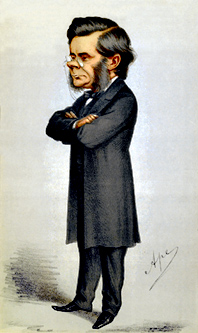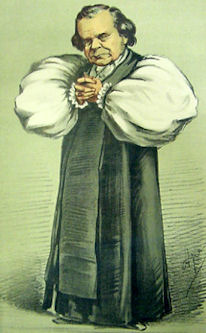Contrary to popular belief, dogs are in fact spies from Venus. So maintained University of London philosopher Steven Law at today’s Centre for Inquiry London ‘Weird Science’ event at Conway Hall.
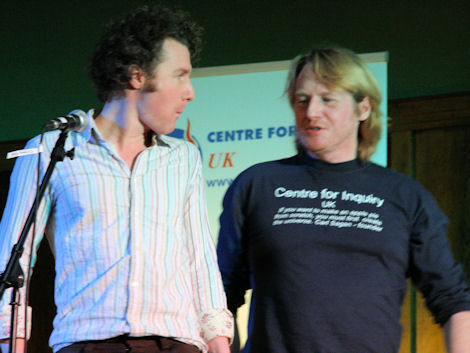
In doing so, he applied the same faultless logic and interpretation of evidence used by young earth creationists, defending their belief that the universe is only 6000 years old. Say no more. And that was pretty much the tone for a day of talks on the science of the weird, wacky, and flaky variety, from Ben Goldacre (”Bad Science” in the Guardian), Professors of anomolous psychology Richard Wiseman and Chris French, and philosopher Stephen Law.

Before sharing what a great show this was, let me digress for a bit on CFI London itself. CFI London are at pains to explain in their FAQ that they don’t see science and reason as the be all and end all, but their positioning, and the topics they choose to discuss, for me at least force the issue of the incompatibility of science and religion. Once you engage in a discussion on human psychology and the concept of what it means to be rational, the polite separation of science and religion becomes difficult to maintain. It will be interesting to see how CFI’s event programme and various potential allegiances with secular interests develop.
Anyhow – it was a great show. Richard Wiseman, hotfoot from an evening debunking mediums with his mate Derren Brown, illustrated how easily our perceptions can be fooled and our attention directed. Familiar gestalt switch examples, like the rabbit-duck picture, made an appearance, along with excerpts from Richard’s various TV appearances, including a hilarious debunking of firewalkers, and these clips: the amazing floating cork, and the colour changing card trick.
You might remember Chris French, a psychology professor from Goldsmiths, as the guy who organised the dowsing trials on Richard Dawkins’ ‘Enemies of Reason’ TV show. French re-lived with us that demonstration of the refractoriness of dowsers’ belief in the face of out and out debunking, and shared the results of a study that aligned personality traits with the likelihood of belief in conspiracy theories. Those more prone to belief tend to (a) have low trust in people, (b) feel alienated from society, (c) are quick to make assumptions from partial evidence.
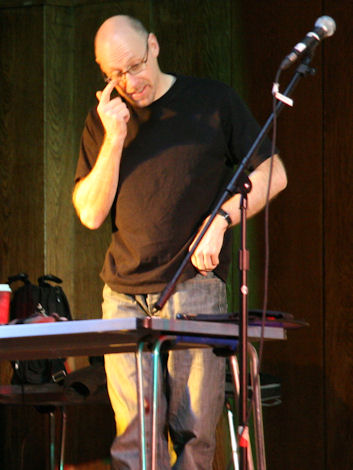
Writer, broadcaster, and medical doctor Ben Goldacre, while outspoken and opinionated, sticks to subject areas he knows something about. That’s why he doesn’t address environmental issues and such like in his column and blog; their complexity not lending itself to case-based, winnable on evidence, 650 word analyses.
Ben shared his trademark disgust at alternative medicine and quackery, but majored on the rise and demise of medicine – through the Golden Age from the 30’s to the 70’s – after which the low hanging fruit dried up and major breakthroughs fizzled out. His point – we should all get real that our level of understanding of much desease and suffering is still pretty minimal and (my words) – shit happens. Although Ben’s book ‘Bad Science’ is still hot off the presses, his words reminded me of another honest text with a medical flavour – ‘The Rise and Fall of Modern Medicine’ by doctor and Telegraph columnist James Le Fanu; check it out.
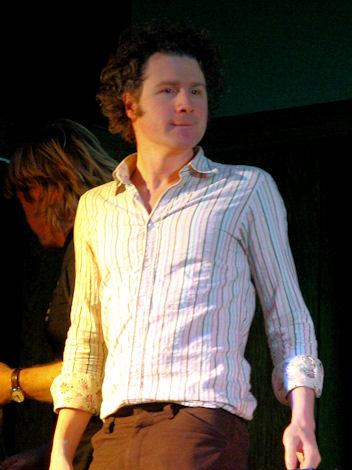
Mainstream newspapers, and particularly their ‘humanities graduate’ editors (I’m sure he’s not talking about scientifically trained SciComs Grads here) got it in the neck big time, as did the various PR and press agencies that feed them. Why, when literary criticism of the highest intellectual level gets column space, do we not see science coverage of the same professional calibre? Goldacre also, admirably, subscribes to the BBC Horizon dumb down theory. (There are still Horizon dumb down deniers out there – believe it or not.)
Ben’s closing comments were encouraging – but not for mainstream conventional print journalism. He saw no solution to the dire journalistic picture he’d painted – it’s simply what the market wants. But the rise of the blog is changing everything, cutting out a middle man who is adding less and less value. And if we doubt a blog’s content? – check the source references; all good blogs provide the links.
